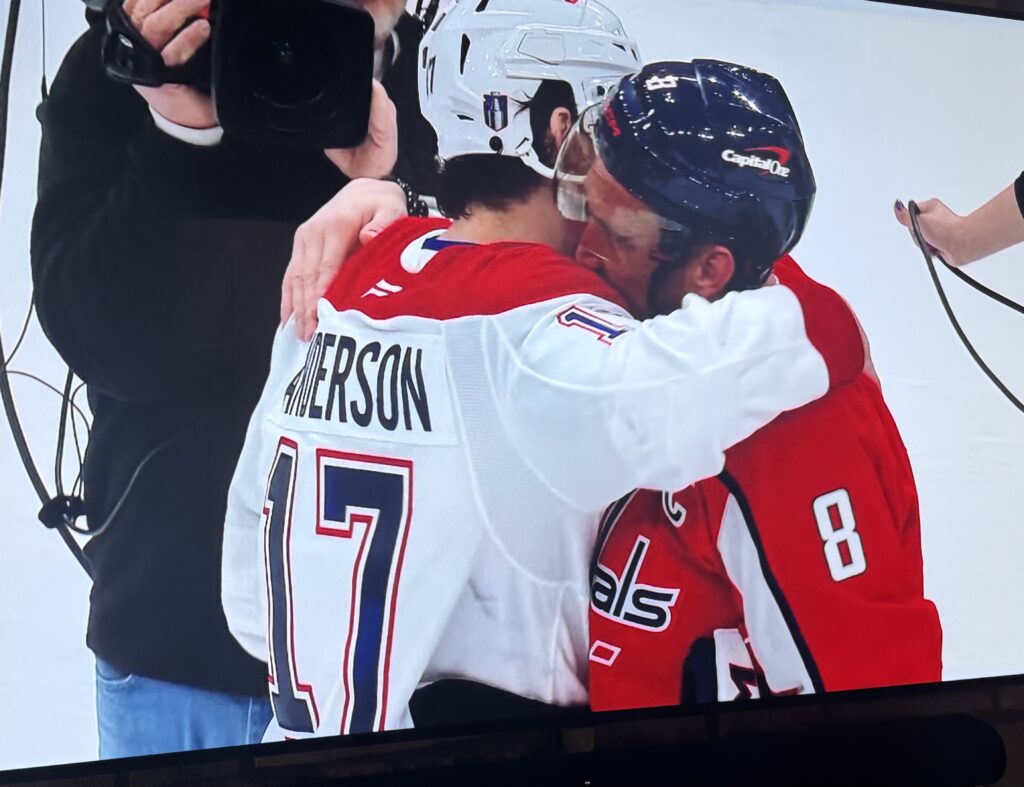
There is no shofar blast. No candle lighting. No sacred text being chanted. And yet, every spring, as the Stanley Cup Playoffs unfold, I find myself watching one of the holiest traditions in modern life:
The hockey handshake line.
For the uninitiated, here’s what happens: after a grueling playoff series—often a best-of-seven matchup that features fights, slashes, body checks, and goals that break hearts—players from both teams line up at center ice. Helmets off. Gloves off. One by one, they shake hands. Every single player. Every coach. Every trainer. After weeks of trying to destroy each other’s chances of victory, they look one another in the eye and say: well done.
It’s not just polite. It’s sacred.
Like most traditions, the origins are debated. Some trace it back to early amateur games in Canada, long before the NHL was born. Others suggest it became formalized during the Original Six era. But the precise date doesn’t matter as much as the feeling it evokes: a collective recognition that while competition may divide us for a moment, respect must unite us in the end.
There’s something deeply Jewish about that.
Our tradition doesn’t fear confrontation. We argue. We wrestle. Jacob literally becomes Israel because he wrestles with God. The Talmud is a centuries-long conversation of disagreement. In the Beit Midrash—the study hall—students raise voices, challenge their teachers, dispute interpretations. But the goal isn’t to destroy each other. It’s to reach truth together.
What makes a machloket (a disagreement) l’shem shamayim—for the sake of heaven—is not that it’s quiet or comfortable. It’s that even after the shouting stops, we can still look each other in the eye and say: you matter more to me than winning.
We desperately need more of that spirit today—not just in hockey rinks, but in boardrooms, on social media, in synagogues, and across kitchen tables. We are living in a time when victory often feels more important than virtue. Where debates are staged not for the sake of truth, but for the sake of likes, outrage, and dominance.
And in that world, the hockey handshake line feels countercultural. Even radical.
Because in those few minutes at center ice, no one is checking ideology. No one is scoring points. They’re just acknowledging something profoundly human: we shared this. We gave everything. And I respect you.
Imagine if we brought that energy into our communities. What would it look like if our synagogue board meetings ended not with exhaustion or resentment, but with a handshake and the words, “Good game”? What would it feel like if, after a heated argument about politics or Israel or anything else we care deeply about, we could still look each other in the eye and say: I still see your dignity. I still care about your soul.
The handshake line doesn’t pretend there wasn’t conflict. It doesn’t erase the pain of losing. It just insists that the person on the other side is not your enemy.
That’s Torah.
The Talmud says: “Eilu v’eilu divrei Elohim chayim”—these and those are the words of the living God. Even opposing views can be holy. Even the one who disagrees with you might be carrying divine truth. That doesn’t mean we agree with everyone. But it means we don’t destroy them in the name of being right.
Every time I watch that handshake line, I think: this is what the world could be. A place where fierce conviction and deep respect can live side by side. Where we give everything we have—and still remember that the person across from us is a child of God.
The world doesn’t need less passion. It needs more humility.
So this spring, as the Stanley Cup Playoffs unfold, maybe take a moment to watch the line—not the goals, not the hits, not the highlights. Just that quiet, powerful walk across the ice. Player after player. Hand after hand. Rival after rival, becoming human again.
It might just be the greatest tradition in sports.
And it might just be the holiest thing we need.
and onto round 2…
Leave a Reply